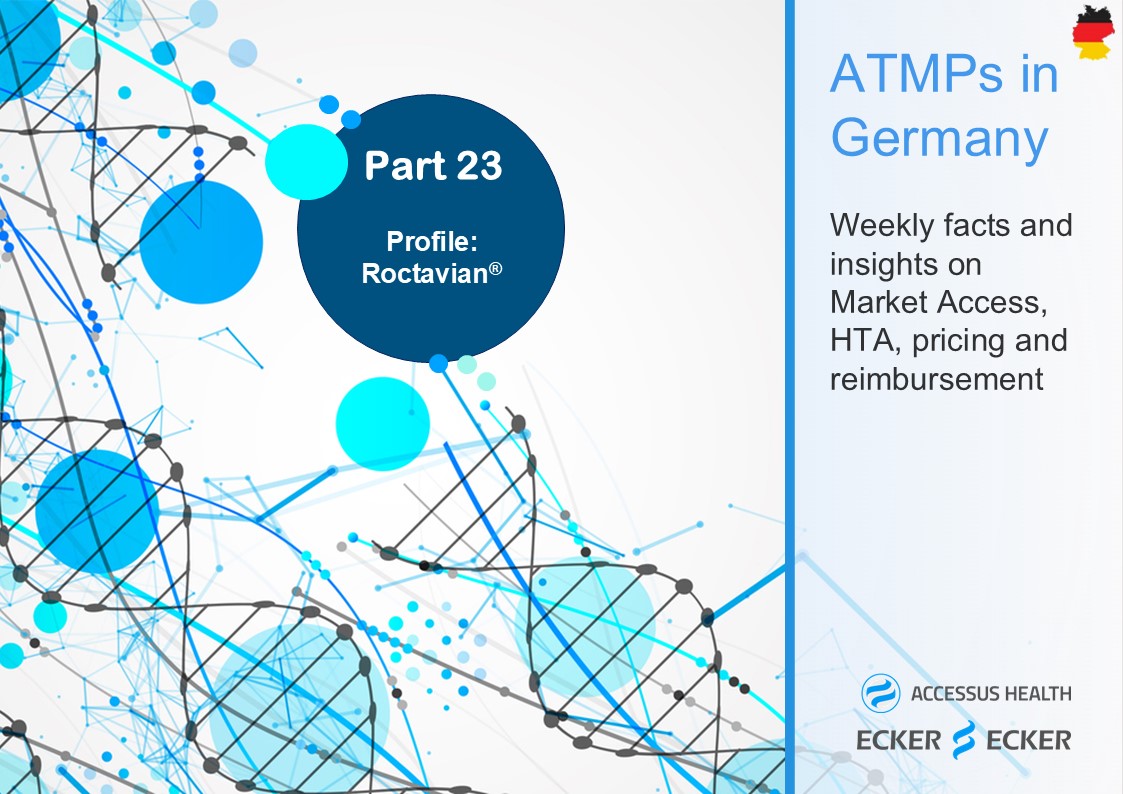ATMPs in Germany - Roctavian®

👉 For Roctavian a periodic outcome-based adjustment of the reimbursement price was agreed on.
Roctavian (active substance: valoctocogene roxaparvovec) was authorized in August 2022 for the treatment of patients with haemophilia A; being the first authorized gene therapy for haemophilia. The pivotal trial is the uncontrolled study BMN 270-301 investigating 134 patients for factor VIII (FVIII) activity, annualized bleeding rate and FVIII usage. Roctavian is available in Germany.
🏆German HTA rating:
No direct comparative data for Roctavian exists. Accordingly, The German HTA rating in March 2023 resulted in a non-quantifiable additional benefit, only due to the orphan drug status.
In addition to the pivotal trial, intra-individual comparisons were submitted for HTA, comparing bleeding events after Roctavian treatment vs. FVIII products. This comparison was rejected by the German HTA body, mainly because the treatment with FVIII products was collected retrospectively. According to the German HTA body, these data cannot be used for comparisons with prospective trial data.
💵 Launch price: € 60,781.25 per vial. Roctavian is used as a one-time treatment; a patient weighing 70 kg requires 27 vials for treatment. Reimbursement price: € 27,641.85 (two price reductions, only one price reduction seems to be associated with a result of an HTA). Cumulative rebate: 55 %
📘 Special features of reimbursement:
In connection with the reimbursement price, a collective P4P model has been agreed. The P4P agreement is an outcome-based prospective cohort model. Under this agreement, the reimbursement price is regularly adjusted based on the success or failure of the therapy. The therapy effect of Roctavian is continuous monitored on basis of RWE from the German Haemophilia Registry.
In addition, Roctavian is subject to the ATMP Quality Assurance Guideline and the routine practice data collection. Therefore, Roctavian will only be reimbursed, if the requirements of both regulations are met.
💡 The Lack of long-term data weakens the position in the price negotiations, especially for one-time treatments, which promise to replace long-term therapies. Agreeing on a performance-based reimbursement price is an option to compensate for this lack. However, this presupposes that therapy success or therapy failure can be adequately measured in the current German health care setting.